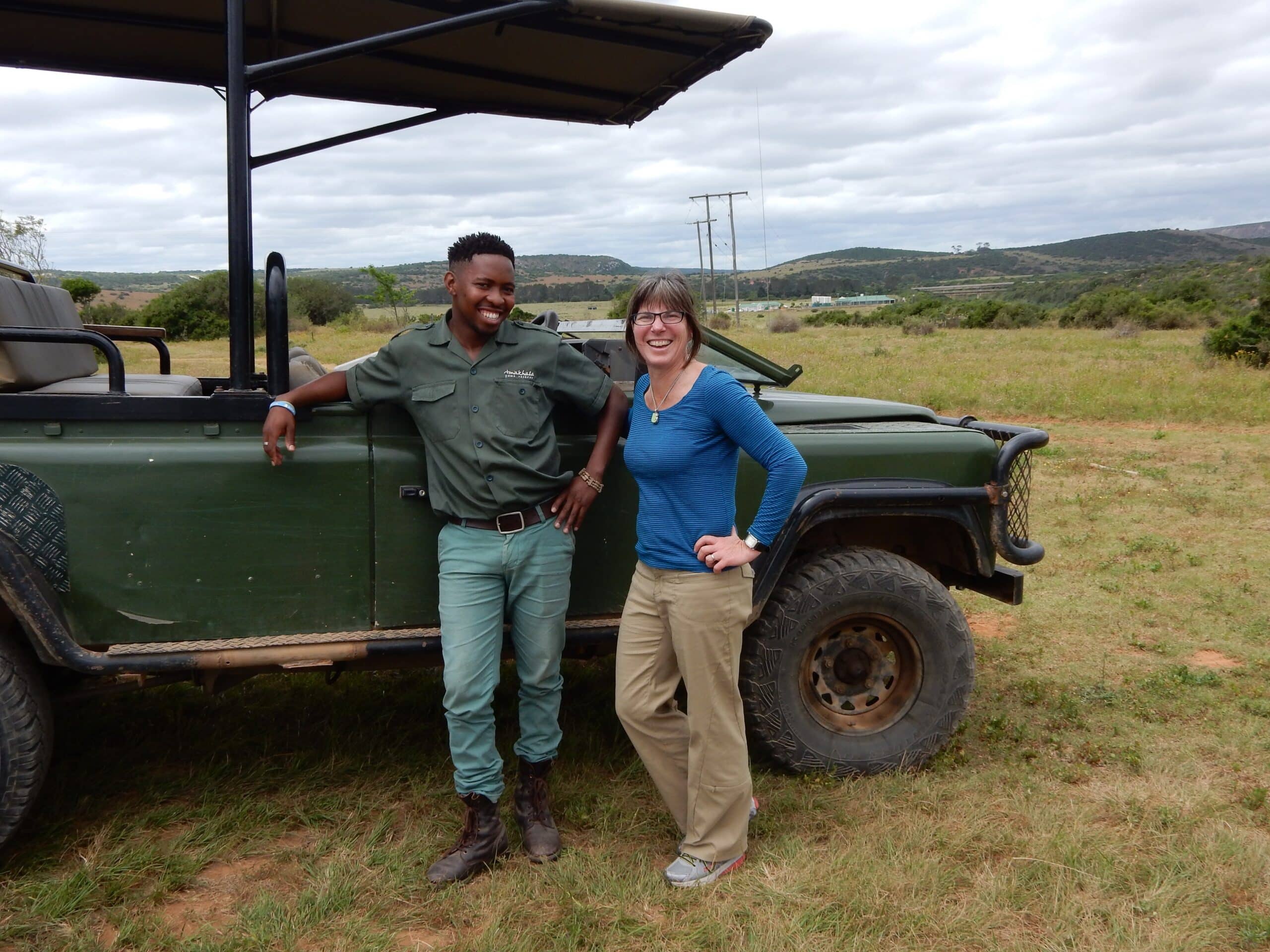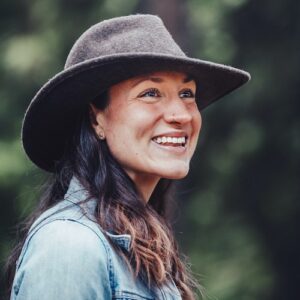Board of Directors Profile: Molly McCabe
Molly McCabe never saw herself in Montana. Neither did her friends and family. She grew up in the San Francisco Bay Area, studied business, and built a thriving career in finance. Bozeman wasn’t on her radar. But she fell in love with a fly-fisherman and moved to Big Sky Country. That was 20 years ago. McCabe now runs a strategic real estate advisory firm and serves on The Freshwater Trust’s board of directors. When we jumped on the phone one afternoon, she told me about the bluebird day they were having, the snow-covered mountains outside her window, how she planned to take a spin on her cross-country skis in the late afternoon, and why The Freshwater Trust is an organization she believes in.
What’s a day in the life of Molly look like?
There’s never really a day in the life. It’s looking out at the mountains and reviewing investment profiles and trying to incorporate sustainability and social equity into projects that I’m working on. Then when I’m on the road I might be working with investors, or doing a lot of advisory work with companies or communities to help make them healthier, stronger and more resilient. It’s a bit of intuition, a lot of creative problem solving, numbers and writing. I focus on making the business case for impact.
How do you make money while making sure the environment is healthy, that communities are strong, that everyone has a fair chance at life and that we are treating people well?
Is this what you always imagined yourself doing?
First, I didn’t have any idea what I wanted to do before I went to undergrad. I wanted to be a doctor, and then I realized blood was not my friend. Then I changed to business and still didn’t know what to do. Then, what do you do when you don’t know what to do? You go to grad school. I came out and got into real estate finance. I’ve always liked the tangibility of it. One of the first projects I worked on was a project to develop 30,000 acres of land in California. I thought at the time, this is pretty crazy. I never really asked myself: Should we be developing this kind of sprawl in southern California? I wish I could tell you from a young age that I was really sustainably minded, but I don’t think I was that aware of it. But I never really liked being motivated by profit without recognizing impacts.
So when I moved to Montana, I had to recreate myself and figure out how I would make a living with my finance background really being in the middle of nowhere. That’s when I ran across responsible property investment.
What’s a project you’re particularly proud of?
I’m happy when I’m able to go into communities to solve big, hairy problems. I got to go as part of a multi-disciplinary team into the Northern Colorado Range after they’d had a big flood and discuss what the community needed to be more resilient. You can’t be resilient if you’re having to helicopter in all your first responders. You cannot have a resilient community without having a diverse set of people in it, so a mix of affordable housing is a component of resilience. Right now, I, along with three colleagues, are developing a new private capital investment model to accelerate housing for homeless people. It’s marrying philanthropy with private money. We believe it could be a lever that changes the dynamic. It’s about having full awareness really and looking at things in a holistic way. By weaving together different threads you can create new opportunities for solutions that are not merely band-aids.

Molly and a guide on a trip to South Africa where she worked on a sustainable development project.
So how do you tie your work to a passion for the environment and in particular for The Freshwater Trust?
What I love about TFT is that you are practical, pragmatic and visionary. It’s like you see in Technicolor what others see in black and white. What I like about TFT is really the same as what I like about my job. TFT takes a holistic view to create solutions for rivers and watersheds. You don’t settle for the obvious path.
You’re asking insightful questions and weaving a bunch of things together. You ask the same kinds of things I ask when working with the built environment. You work with a lot of different stakeholders and bring them all to the table around one solution. One challenge I have with a lot of conservation organizations is the notion that they should be supported just because it’s the right thing to do. Just saying it’s the right thing to do doesn’t get you there. We need to ask where we have common interests and we need to understand our impact. TFT gives people the tools to do that.
If you were going to be a fish, what fish would you be?
I’d probably pick rainbow trout because it swims in our little creek and is native here in Montana.
What’s a surprising fact that you learned about recently?
The two fastest growing segments of people moving into homelessness are teenagers and families, especially women with children. Frankly, this recovery feels like such a strong one if you read the stats. But there’s a huge contingent of our population that’s one major crisis away from homelessness. Oh, I recently learned there are something like 50,000 homeless people in LA; that’s up 75% in the last six years.
Is there a certain project or program that really resonates with you?
I love the Streambank Toolkit and your ability to drill down and identify not only where to put something but also which action is going to be the most beneficial and cost-effective. We always tend to throw solutions at things and hope something sticks and you have actually refined that process. It’s far more effective. I also love that you’re working in California because that’s my home ground.
If we asked your friends to tell us something about you, what do you think they’d say?
I think they’d say they can’t believe I up and moved to Montana. Is that a great story? Probably not. But it’s mine. My husband would tell you the time we went camping in Idaho and the mosquitoes were so very unkind to me. He tells it frequently.
What’s your home river?
Wolf Creek runs through my property. It’s a spring creek which runs into the Swan River.
March 20, 2018#impact investors
Enjoying Streamside?
This is a space of insight and commentary on how people, business, data and technology shape and impact the world of water. Subscribe and stay up-to-date.
Subscribe- Year in Review: 2023 Highlights
By Ben Wyatt - Report: Leveraging Analytics & Funding for Restoration
By Joe Whitworth - Report: Transparency & Transformational Change
By Joe Whitworth - On-the-Ground Action – Made Possible By You
By Haley Walker - A Report Representing Momentum
By Joe Whitworth

